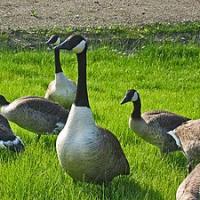Messages : 22
Langue: English
Zam_franca (Voir le profil) 8 décembre 2019 17:22:31
Metsis:Having said that I still recommend Lernu over Duolingo at the very beginning, because the later, eh... how to put this diplomatically, is more US English oriented than is advisable for a learning platform for the whole world.I do agree.
Nala_Cat15 (Voir le profil) 10 décembre 2019 19:32:26
sergejm (Voir le profil) 10 décembre 2019 21:15:45
drsolution (Voir le profil) 11 décembre 2019 16:17:01
 because it marks everything wrong. e.g. possessives: via + kato = tio estas via kato per the example but marked it in red=wrong...
because it marks everything wrong. e.g. possessives: via + kato = tio estas via kato per the example but marked it in red=wrong... Metsis (Voir le profil) 12 décembre 2019 09:59:20
drsolution (Voir le profil) 13 décembre 2019 01:05:35
The DO is in BOLD
• The dog hates when her owner puts her on a leash.
• La hundo malamas, kiam ŝia posedanto perforten or
• La hundo malamas, kiam ŝian posedanton perforten. Or
• ?
•
• Tommy prefers the librarian with red glasses.
• • Tommy preferas la bibliotekiston per ruĝaj okulvitroj.
• Why not?
• • Tommy preferas la bibliotekiston per ruĝajn okulvitrojn.?
•
• Shannon loves traveling to Europe.
• • Ŝannon amas vojaĝi al Eŭropon. ?
•
• Europe welcomed millions of tourists last year.
• • Eŭropo bonvenigis milionojn da turistoj pasintjare. or
• • Eŭropo bonvenigis milionojn da turistojn pasintjaren.
•
• Jack chased Jill and her merry band of friends.
• • Jack persekutis Jill kaj ŝian feliĉan bandon de amikoj.
• Why not
• • Jack persekutis Jill kaj ŝian feliĉan bandon de amikojn.
•
• • Becky baked Bernice a plateful of cookies.
• Becky bakis pladon da kuketoj al Bernice. Why not
• Becky bakis pladon da kuketojn al Bernice. ?
•
• • Her mom brought her a glassful of seashells.
• Ŝia panjo alportis al ŝi glason da marŝeloj.
• Why not
• Ŝia panjo alportis al ŝi glason da marŝelojn.
•
• • Can we tell our friends the story of how we met?
• Ĉu ni povas rakonti al niaj amikoj la historion de kiel ni renkontiĝis?
•
• • The sun gave the garden a pocketful of sunshine.
• • La suno donis al la ĝardeno puŝon da sunbrilo.
• Why not
• • La suno donis al la ĝardeno puŝon da sunbrilon. ?
•
• • Seamus assembled Marie a brand new office chair.
• Seamus kunmetis al Marie tute novan oficejan seĝon.
• Why not
• Seamus kunmetis al Marie tuten novan oficejan seĝon. ?
•
nornen (Voir le profil) 13 décembre 2019 02:52:19
• La hundo malamas, kiam ŝian posedanton perforten.
Kion tio signifu?
sergejm (Voir le profil) 13 décembre 2019 03:30:38
"Leash" estas "kondukŝnuro/kondukrimeno/kondukilo"
"Put on" estas "surmeti"
Bibliotekisto estas kun ruĝaj okulvitroj.
"kun", "per", "al", "de", "da" kaj multaj aliaj prepozicioj neniam uzas akuzativon.
Plateful => plena plado, pocketful => plena poŝo, glassful => plena glaso.
Metsis (Voir le profil) 14 décembre 2019 20:00:47
Okey, I thought you had an issue with extra spaces, but you seem to have issues with the language.
First take a look at my previous answer in this thread. I gave you links to the grammar section here at Lernu and a Duolingo page giving a compact explanation of the accusative case (and if that term doesn't say anything to you, watch this Youtube video first..
Second you need to learn what prepositions to use with what expressions, do not assume that there is a 1:1 correspondence between the English and Esperanto ones.
drsolution (Voir le profil) 15 décembre 2019 13:10:38
your help.
What I find is that it is very difficult to find help for a nubie like me because those who are "experts", as in many fields, have no patience and do not understand why it seems difficult when it is so easy and obvious to them.
I am a dentist so obviously I have the ability to learn.
All I am trying to do is find a basic understanding of what to use and when and there are so many it is hard to corrilate.
You know like
Who, what where when how why etc. That way when I see • Kiu estas tiu viro? I know that is who is that man?
and again I know it is not always that simple, but it would be a start.
Yes, I know it is much more complicated than that with all the possible modifiers but those can be added as I go along.
BTW do you know if lerni still has the tutor program or is that gone? I remember there were lessons which would be sent to a person who would then correct and return by email th corrections and answer questions.
Thanks again for your comments




